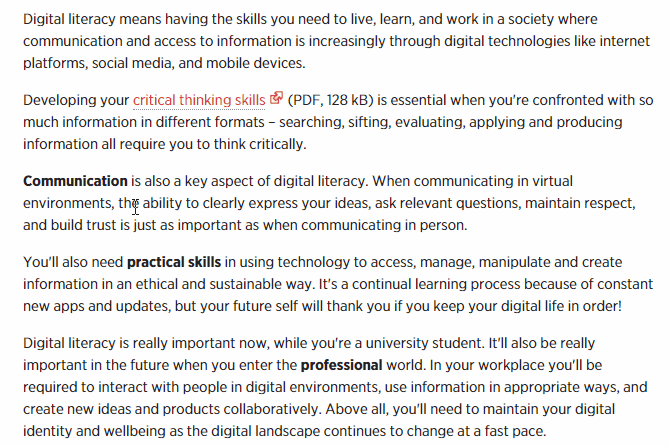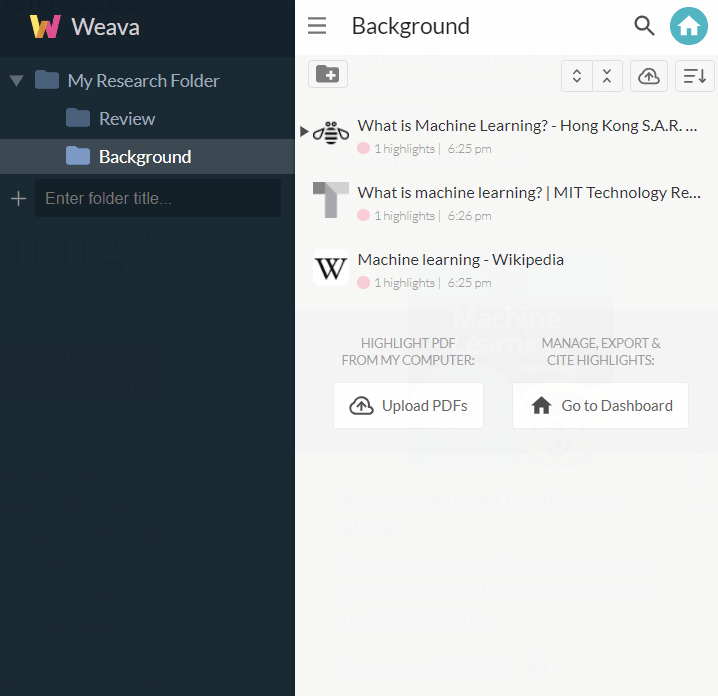
Organize
This article focuses on the “Organizing” feature on Weava, and is part of the 4-series onboarding guide to help you make the most out of Weava.
By Weava Team • 7 min read

Welcome to the third article of Weava’s Academic Series!
This Academic Series is a guide to help you confidently tackle your research and school assignments. We recommend you to read our previous article on How to Plan Your Academic Essay and Academic Reading for more tips.
Now that you know the topic that you need to research on, this guide is here to provide you with a few tips to keep in mind while you are reading through the web. To conduct your research efficiently and effectively, you need to understand the different types of sources and where to find them, how to assess the credibility of the sources, and how to create citations and references properly.
Note that in the ocean of information, there are different types of sources available for your research. It is important to be able to identify the traits and qualities of each type of sources, so that you can assess how to refer to them at the right place in your research. According to the reference guide by Bow Valley College, sources can be categorized according to the level of originality – primary, secondary, and tertiary.
Primary Sources are original materials that are presented firsthand, and they are unfiltered, without interpretation and evaluation. Examples of primary sources include:
Secondary Sources are materials that add a layer of perspective to the primary work. They are often written in argumentative or analytical tone, and they often aim to counter, extend, or supplement previous works. Examples of secondary sources include:
Tertiary Sources are materials that are quite general and broadly focused, without much evaluative analysis or critique. Examples of tertiary sources include:
Whenever you are reading online, try to assess which types of sources are appropriate for the purpose of your search. For example, when you are trying to research on some factual historical events, you should try to first find objective tertiary sources and beware of the subjective evaluations and opinions written in secondary sources.
Information found on the internet needs to be scrutinized, as it may be outdated, subjective, or inaccurate. Your references for academic research should be based on sources that are legitimate and reliable, as the quality of your sources will oftentimes determine the credibility of your arguments. But when you are browsing through the multiple articles and websites online, how can you tell if the information provided is credible enough? This section will focus on how you can evaluate your sources.
Common Characteristics of a Scholarly and Peer-reviewed Article
The CRAAP test, acknowledged by a number of universities, is another useful way to evaluate the quality of the web sources.
To make the research process itself go more smoothly, optimize your searches by using concrete, specific, and concise words or sentences. Modify your search by adding or changing keywords, or by using the Boolean operators (AND, OR, NOT) and truncation (*) to expand and narrow down results.
You can also enhance your research efficiency with Weava. Weava allows you to organize your research in customized folders and to highlight and annotate on important texts, saving you the time to navigate between countless number of online tabs and revisit each to find the resources you were looking for. See the illustration below:
Highlight key notes directly on your online sources

Review all your highlights and notes from your sidebar or dashboard, instead of revisiting each website and re-reading the whole materials.

Weava is a great tool for students as it helps you to easily retain information and stay organized on the web. Weava is currently used by hundreds of thousands of users worldwide in their academic journeys. If you haven’t already, consider downloading the Weava Chrome extension today.

This article focuses on the “Organizing” feature on Weava, and is part of the 4-series onboarding guide to help you make the most out of Weava.

A short guide to help you confidently tackle your academic paper assignments and make your writing process efficient and stress-free.

Knowing how to manage your reading is crucial, but how do you condense large amounts of texts into useful information? Learn more here.

Learn how to create in-text citations and bibliography when you are referencing external sources of information on your academic research.